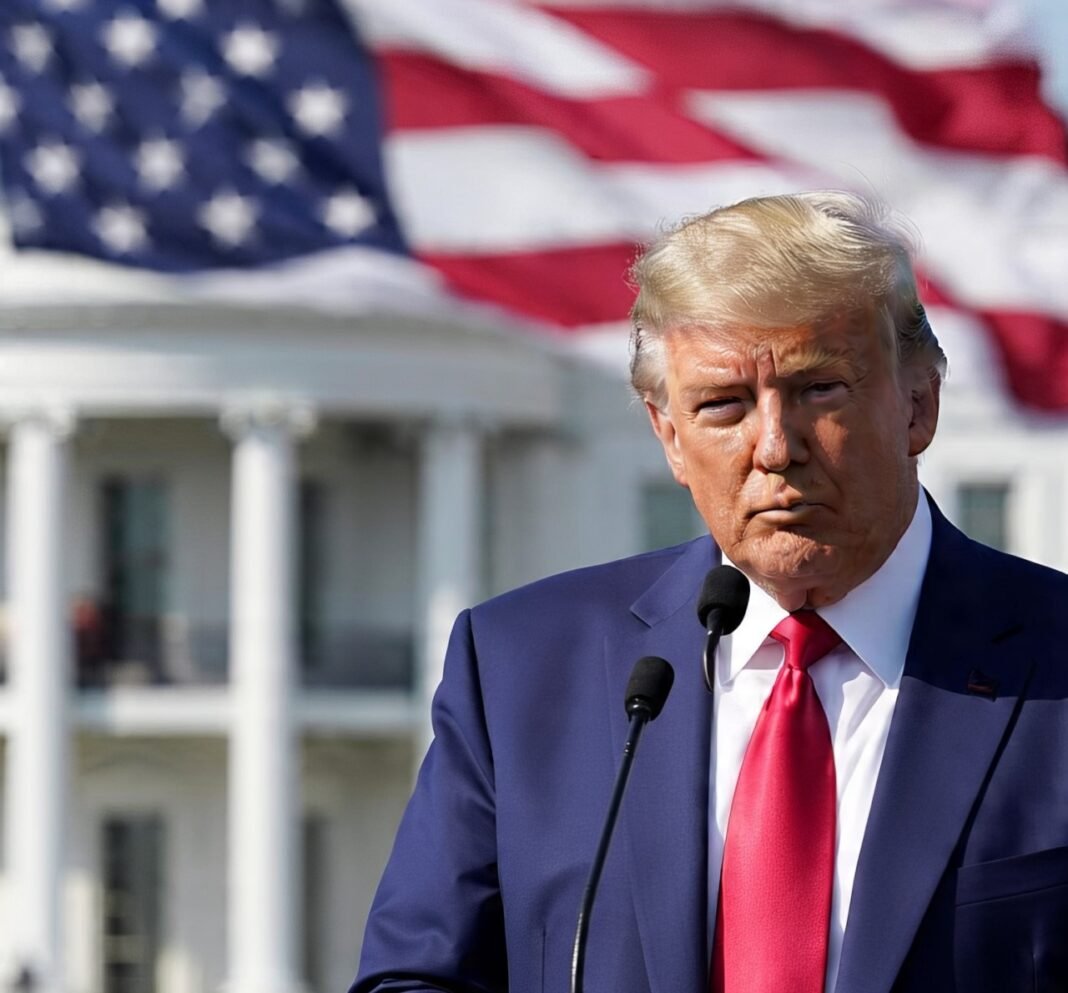Trump’s Latest Push on Ukraine Peace
Washington: US President Donald Trump has once again placed India at the center of his diplomatic strategy to end the Russia-Ukraine war. A day after meeting Ukrainian President Volodymyr Zelensky at the White House, Trump said that his administration’s sanctions on India were part of a broader effort to push Moscow toward peace negotiations.
White House press secretary Karoline Leavitt explained on Wednesday that the president’s actions, including secondary tariffs on India, reflect his determination to bring the conflict to a close. “The President has put tremendous public pressure to bring this war to an end,” she said during a press briefing. “He has taken actions as you’ve seen—sanctions on India and other measures as well. He has made himself very clear that he wants to see this war conclude without further delay.”
Tariffs on India Spark Debate
The reference to sanctions on India specifically relates to tariffs imposed earlier this year on Indian goods, widely interpreted as secondary penalties for New Delhi’s continued purchases of discounted Russian oil. According to US officials, India profited “hugely” from the resale of Russian crude during the war years, positioning itself as a major beneficiary of Western sanctions on Moscow.
Trump, however, framed the move differently, suggesting the tariffs were designed to signal to Russia that global powers, including India, could not continue with “business as usual” while the conflict persisted. “Sanctions on India probably played a role in Putin agreeing to meet,” Trump reportedly told reporters after his White House meeting with Zelensky.
Meeting with Zelensky and Prospect of Trilateral Talks
Trump’s comments came shortly after his highly anticipated meeting with Ukrainian President Volodymyr Zelensky. The two leaders discussed pathways to peace, with Trump emphasizing his commitment to explore direct negotiations with Russian President Vladimir Putin.
In a striking development, Trump hinted at the possibility of a trilateral meeting involving himself, Zelensky, and Putin. “We’re not waiting months for endless discussions,” Trump said, underscoring his urgency to seek immediate progress. He has previously criticized international bodies and Western allies for what he described as “delays and indecision” in resolving the crisis.
India’s Strategic Dilemma
India, which has maintained a carefully balanced position since the start of the Ukraine conflict, now finds itself under renewed pressure. While New Delhi has abstained from outright condemning Russia in international forums, it has simultaneously deepened defense and trade ties with Western partners, particularly the United States.
The new tariffs, however, threaten to complicate India’s economic interests at a sensitive time. Analysts argue that Trump’s move could strain bilateral relations even as Washington seeks India’s support as a counterweight to China in the Indo-Pacific region. “The US has put India in a difficult spot,” said a senior policy expert. “While India has profited from Russian oil, it has also sought to maintain its strategic autonomy. These sanctions test that balance.”
White House Stance on Urgency
Press secretary Leavitt doubled down on the administration’s view that immediate action is required. Rejecting suggestions that Washington should wait another month before high-level talks, she said Trump is committed to accelerating peace efforts. “The President has rejected ideas that we should simply wait and watch. He wants this war ended quickly and is willing to take decisive measures.”
Implications for Global Diplomacy
The announcement underscores Trump’s unpredictable but high-stakes approach to international diplomacy. By targeting India, a close defense and trade partner, Trump has signaled his willingness to take bold measures even if they upset traditional allies. The strategy also highlights the US administration’s belief that India’s role in the global oil trade gives it leverage over Russia’s war chest.
Observers note that while Trump’s tariffs may carry economic consequences, they also create diplomatic opportunities. Should Putin agree to a trilateral meeting, it would mark the first direct negotiation between the Russian leader and Trump since his return to the White House, with Ukraine’s participation adding an unprecedented dimension.
Looking Ahead
Whether these sanctions on India succeed in pressuring Moscow remains to be seen. For now, the world watches closely as Trump intensifies his push for peace, Zelensky cautiously signals cooperation, and Putin weighs the cost of engaging in direct talks.
As the Ukraine war drags into its third year, the stakes could not be higher. India’s economic interests, US-India relations, and the global oil market are now entangled with Trump’s bid to end one of the most devastating conflicts in Europe since World War II.








